Here we let you know the top attractions in Rome. It is a city, proud of its ancient glorious heritage and expanded its empire throughout Europe, Africa, and Asia. Rome is a city flowing in history and Christianity. It’s quite hard to decide where to go first, because your own interests will govern your choice, but there are certain attractions in Rome that are almost mandatory landmarks of Italy and of Europe, such as the Colosseum and the Trevi Fountain. First-time visitors may be easily insane by all this magnificent city has to offer but after that, all can find history and art at every corner of the street. Unfortunately, it’s not possible to see all the top tourist attractions in Rome within a few days or even a few months. Therefore here we recommend you some Rome tourist attractions.
List of Tourist Attractions, Places in Rome
1. The Colosseum
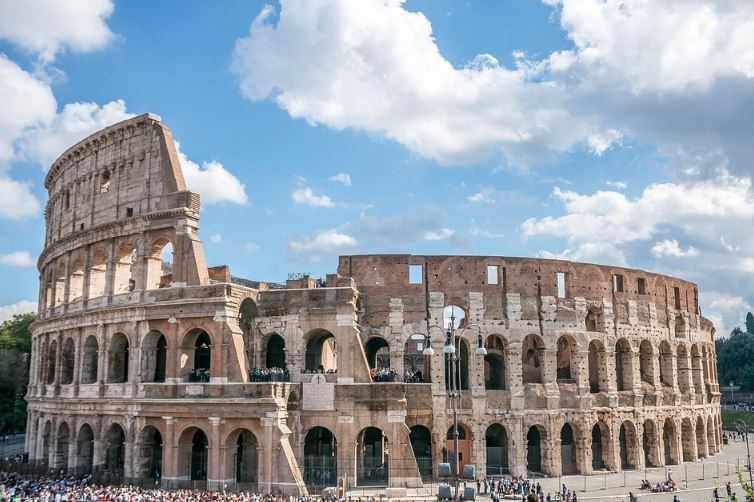
The Colosseum
Colosseum is the largest structure left by Roman antiquity, the Colosseum still provides the facilities for sports arenas, present football stadium design is totally based on this oval Roman plan. The building was begun in AD 72 by Vespasian, after his son, Titus enlarged it by adding the fourth story, which was inaugurated in the year AD 80 with a series of superb games. The Colosseum was big enough for theatrical performances, festivals, circuses, and games, which the Imperial Court and high officials watched from the lowest level, aristocratic Roman families on the second, the township on the third and fourth to explore more, read these facts about Colosseum.
Beside the Colosseum stands the equally familiar Arch of Constantine, which is a triumphal arch erected by the Senate to honor the emperor as “liberator of the city and bringer of peace” after the victory in a battle of the Milvian Bridge in 312. Lines are quite long and move slowly.
Read More: Restaurants near Colosseum
2. Vatican City
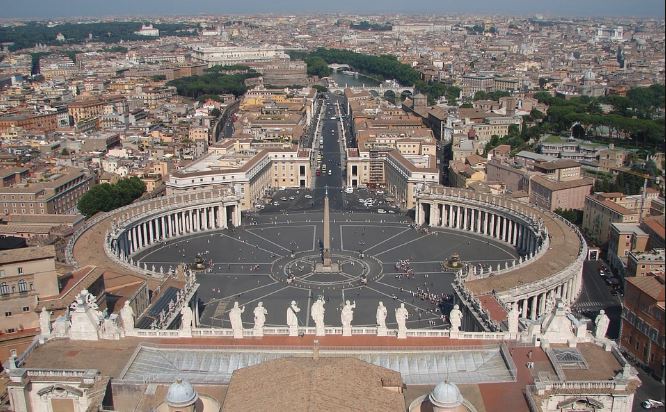
Vatican City
The Vatican is the smallest and independent state in the world, with less than half a square kilometer, most of it is enclosed by the Vatican walls. Inside there are some Vatican palace and gardens, St. Peter’s Basilica, and St. Peter’s Square, an area ruled by the Pope who is the supreme head of the Roman Catholic Church. This solid space offers much for tourists to see, between its museums and the great basilica itself.
Inside St. Peter’s Basilica, there is Michelangelo’s masterpiece, Pieta, along with sculptures and altars by Bernini and others. The highlight of the Vatican museums is the Sistine Chapel, whose magnificent paintings of the ceiling are Michelangelo’s most famous work. Inside the Vatican, Palace there is Raphael Rooms, the Borgia Apartments, the Vatican Library, and a number of museums which include the Picture Gallery, Museum of Secular Art, Etruscan Museum, and others. Read: Vatican City Facts
Ticket lines for the Vatican’s top attractions are too long, and you can spend several hours waiting in line, their fore only to save time, in advance purchase a Skip the Line: Vatican Museums with St. Peter’s, Sistine Chapel, and Small-Group Upgrade tour. This three-hour tour will allow you to bypass the long lines and walk straight into the museums with a guide.
3. The Pantheon
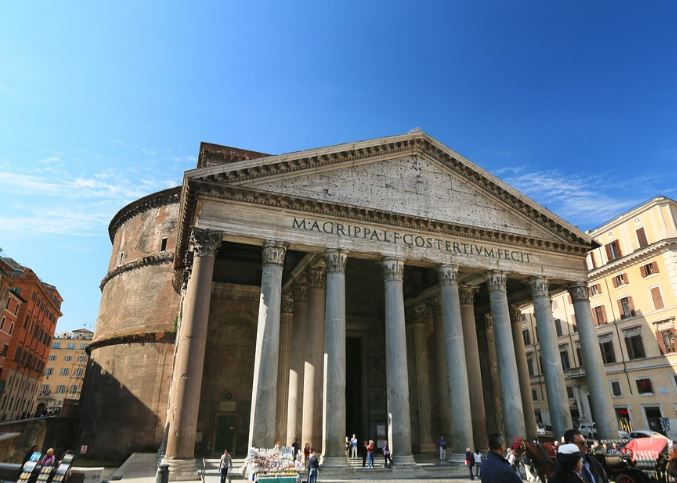
The Pantheon
The Pantheon a well-preserved monument of Roman antiquity and is remarkably intact for its 2000 years. There is the fact that Pope Gregory III removed the covered bronze roof tiles, and Pope Urban VIII ordered its bronze roof stripped and melted down to cast the sunshade over the altar in St. Peter’s and cannons for Castel Sant’Angelo. It was rebuilt in AD 80 after damage by fire, and the resulting brickwork shows the high technical mastery of Roman builders. Its 43-meter dome, the supreme achievement of Roman interior architecture, hangs up without visible supports, these are well hidden inside the walls and its nine-meter central opening is the only light source. The compatible effect of the interior is a result of its proportions ie the height is the same as the diameter. Although the first Christian emperors prevent using this pagan temple for worship, to explore more about Pantheon read on the Pantheon fact. In 609 Pope Boniface IV dedicated it to the Virgin and all the Christian martyrs, and since then, it has become the burial place of Italian kings and other famous Italians, including the painter Raphael.
4. Roman Forum
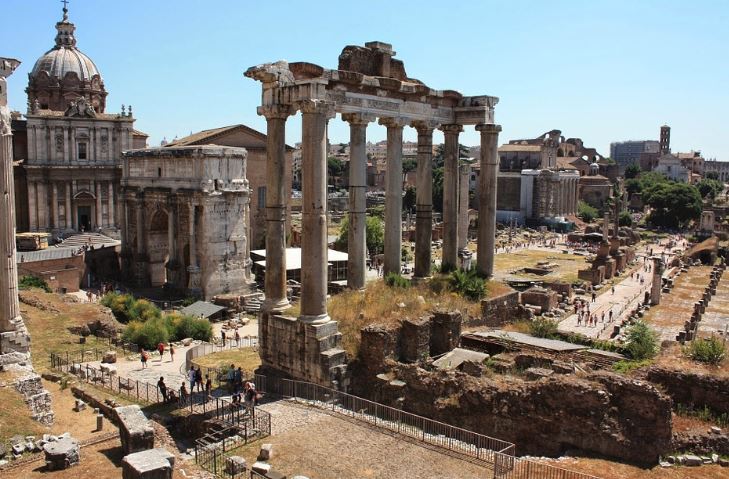
Roman Forum
Walking through the forum, now in the middle of a resonate modern city, is like stepping back two millennia into the heart of ancient Rome. Roman political and religious life was centered here, with the courts, markets, to know more about the Roman Forum explore these Roman forum facts. After the seventh century, the buildings fell into ruin, and churches and fortresses were built between the ancient remains. Its stones were extracted for other buildings and it was not until the 18th and 19th centuries that brought the ancient buildings to light from under a 10-meter layer of earth and rubble.
5. Trevi Fountain
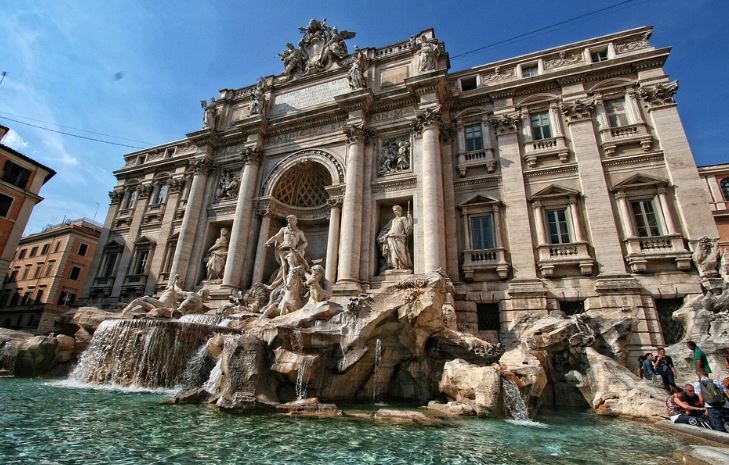
Trevi Fountain
It is one of the most popular Rome tourist attractions, this 17th-century masterpiece has been immortalized in many films until it is almost a required visit. Throwing a coin into the Fountain is a tradition that is supposed to assure your return to Rome. Rome’s largest fountain, Fontana di Trevi is supplied by an aqueduct which was originally constructed by Agrippa, the great art patron of the first century BC, to bring water to his baths. The fountain depicts the sea god Oceanus (Neptune), with horses, tritons, and shells. The water twiddle, around the figures and the artificial rocks, and collects in a large basin, always filled with coins.
6. San Giovanni in Laterano
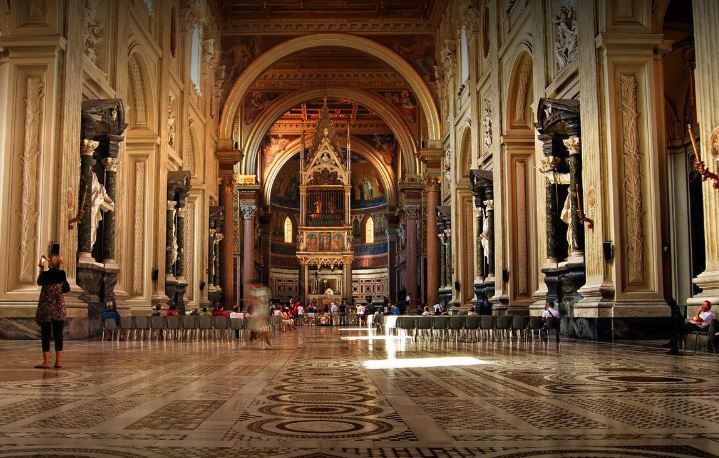
San Giovanni
As you might expect for the pontifical church of the Pope, St. John Lateran is one of Rome’s most imposing churches. After centuries of alterations still, it retains its original form from the age of Constantine when it was built. Its façade is a purely baroque embellishment and a fine example of that period. Along with the patchwork in the apse, be sure to notice the beautiful 16th-century wooden ceiling. It is the world’s oldest Christian baptistery built by Constantine. Across the piazza, in the church of the Scala Santa, there is the Holy Staircase, 28 steps believed to have been brought to Rome in the fourth century by St.
Read More: Best Time to Visit Rome
7. Centro Storico & the Spanish Steps
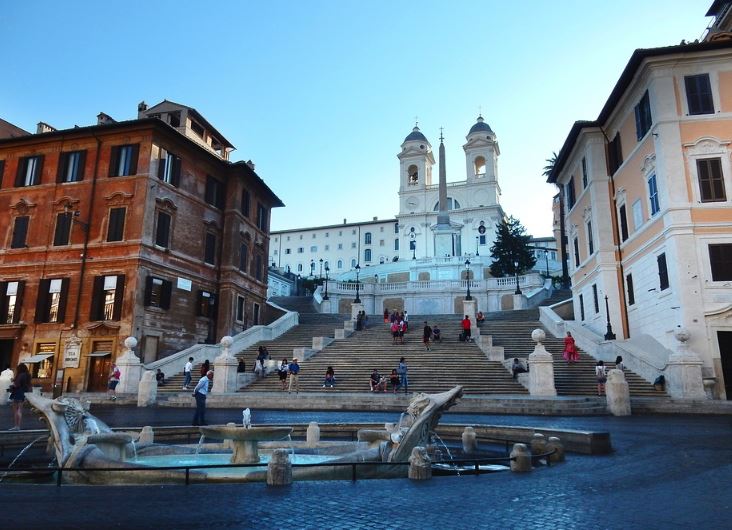
Spanish Steps
Take a look at attractions in Rome, and you’ll see one area so filled with things to do in Rome, that it’s hard to read the street names. This is the Centro Storico, the historic center of Rome, with several art-filled churches, resplendent palaces, and lively squares that you could spend your vacation strolling its ancient streets and lanes. Spend some time to absorb the neighborhood’s atmosphere instead of going from one of its must-see sights to the next.
Along with Piazza Navona, the Trevi Fountain, stop in less well-known churches, such as Santa Maria del Popolo, where you would find works by Bernini and Caravaggio.
The boat-shaped fountain at the foot of the Spanish Steps is known as the Barcaccia which was created by Pietro Bernini, father of the great Baroque architect Gian Lorenzo Bernini. Via Condotti, to know more about it read on these facts about Spanish steps.
8. Santa Maria Maggiore
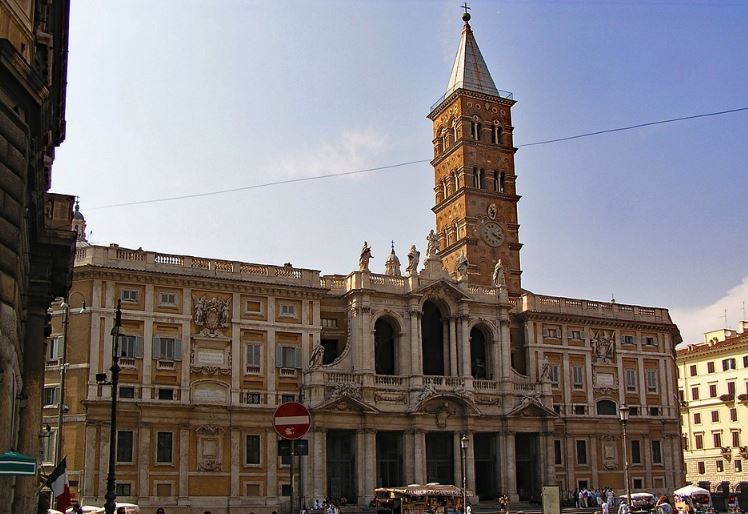
One of Rome’s awesome churches, Santa Maria Maggiore has stood here since the fourth century. Pope Liberius had a vision of the Virgin who was directing him to build a church where snow fell on the following day. Although it was August, the snow did fall on Esquiline Hill, so here the great basilica was built. Mass is celebrated there every day since the fifth century. The three paths of its 86-meter-long interior are separated by 40 columns of marble and four of granite, and the apse added in the 13th century is lined with a patchwork of Old and New Testament themes, masterpieces of Rome’s famous mosaic artists.
Read: Visiting Rome for The First Time
Rome’s oldest mosaics are as old as the fourth century, decorate the upper walls, and the floor is decorated with colored stone in the style of the expert 12th-century artisans of the Lake Como region.
Address: Piazza di Santa Maria Maggiore, Rome
9. Piazza Navona
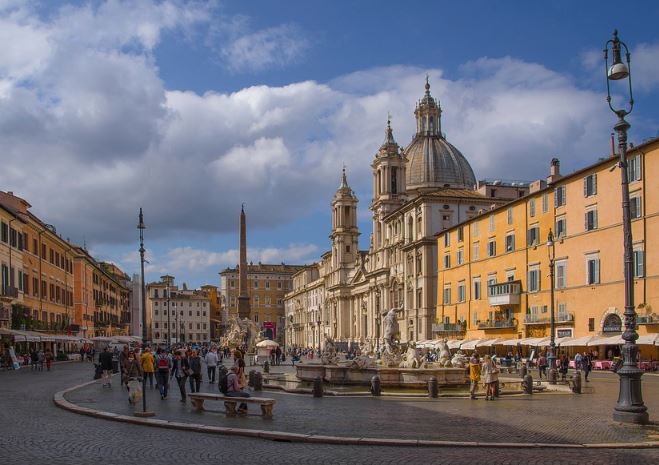
Piazza Navona has the outline of the Roman stadium built here by Emperor Domitian. It is still used for festivals and horse races during the Middle Ages and rebuilt in the Baroque style by Borromini, who also designed the series of palaces and the church of Sant’Agnese, on its west side.
Although Borromini has designed the square and its surrounding facades, it was his archrival, Bernini, who created its centerpiece, the beautiful Baroque fountain, Fontana dei Fiumi. The Daring fountain represents the four rivers then thought to be the largest known continents, with figures personifying the Nile, Ganges, Danube, and Rio de la Plata around the large basin, each one accompanied by plants and animals of their respective regions. Today, the square is filled with Romans, tourists, street artists, cafés, and during December.
Also Read: Piazza Navona Interesting Facts
10. Palatine Hill
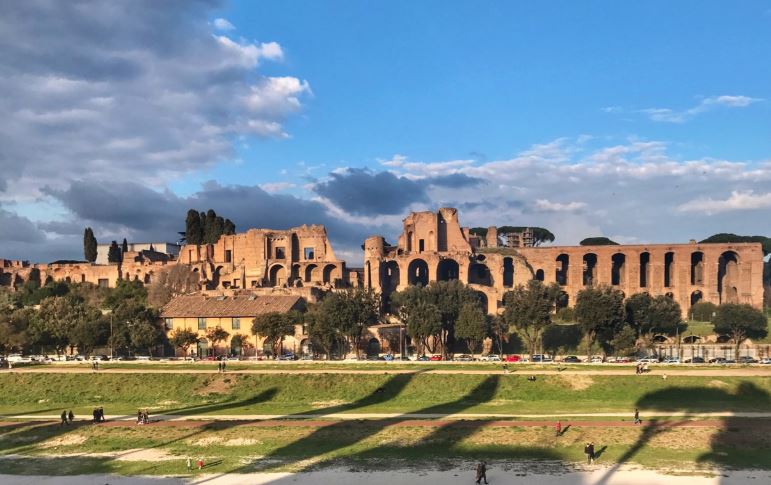
Strategically the Palatine Hil set 50 meters above the Tiber, it shows evidence of Rome’s earliest settlement. Later, this place was chosen by the emperors and great aristocratic families for their palaces. The Farnese Gardens were dug out on the hill in the 16th century for Cardinal Alessandro Farnese, a pleasure park of terraces, pavilions, lawns, flowerbeds, trees, and fountains designed as a kind of stage-setting for social gatherings. Palatine Hill is a lovely place to explore, the combination of a park with magnificent and impressive ruins of ancient Rome.
Don’t Miss
- 10 Most Romantic Things to Do in Rome
- Best Free Things to do in Rome
- Romantic Places in Rome
- Complete Rome Travel Guide
So far we covered the top tourist attractions in Rome with their brief description, through which it would be easy for you to discover the Rome tourist attractions. Hope you loved reading this article to explore more about these top tourist attractions in Rome Italy. Kindly read our other articles as well to discover more about the eternal city, Rome. Please like this article and share your views with us.
The post Rome Tourist Attractions | List of Top Tourist Attractions in Rome appeared first on World Tour & Travel Guide, Get Travel Tips, Information, Discover Travel Destination | Adequate Travel.